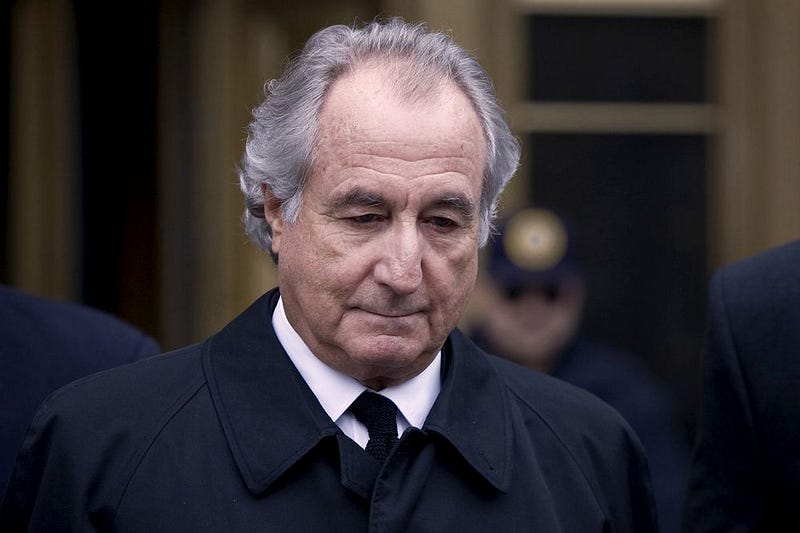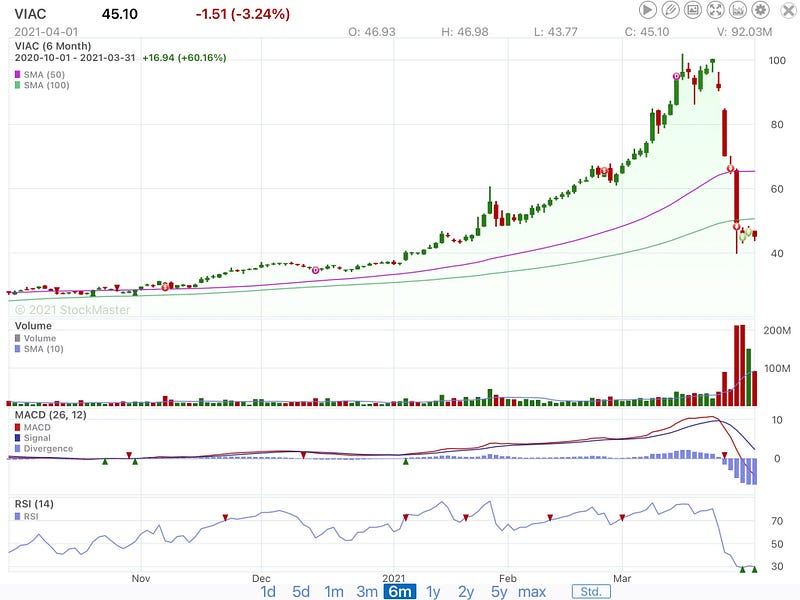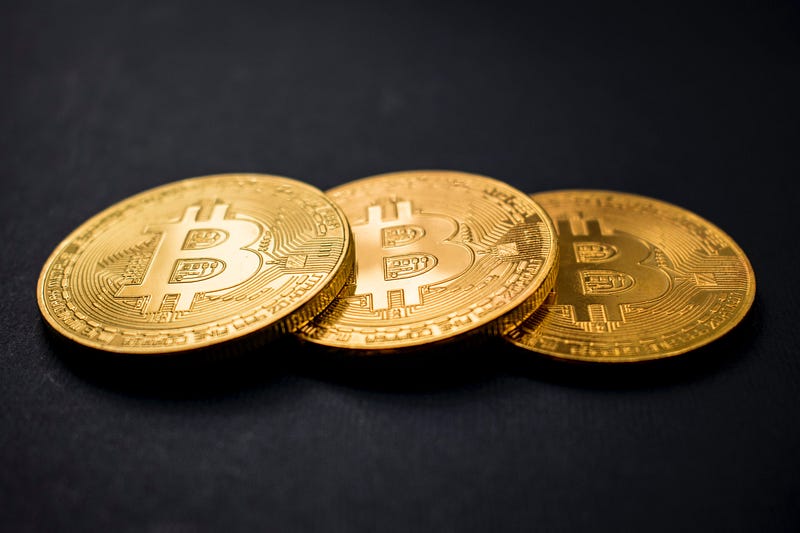# The Perilous Denial Phase of a Tech Market Correction: Insights from Bernie Madoff
Written on
Chapter 1: The Current Economic Landscape
Recent projections suggest that the economy may experience significant growth in the latter half of 2021 as vaccination rates increase. Yet, there remains a divide among economists regarding the implications for the stock market. The Federal Reserve anticipates a faster-than-expected growth rate, asserting that inflation will be temporary. Meanwhile, Goldman Sachs reassures investors that the market is not in a bubble, urging calm. However, many economists are raising alarms about inflated stock prices and inflation risks that could harm the market.
Larry Summers, a former Under Secretary of the U.S. Treasury for International Affairs, argues that we are witnessing unprecedentedly irresponsible macroeconomic policies. This sentiment was underscored by the recent forced liquidation of Archegos Capital Management, highlighting the perils of ignoring potential downturns. As we near the 12-year mark since Bernie Madoff's sentencing, it is crucial to reflect on how investors have historically remained in denial despite evident warning signs, leading to devastating losses.
This article will cover:
- The greatest Ponzi scheme in history
- The denial phase
- The anger phase
- The bargaining phase
- The depression phase
- Acceptance
The Greatest Ponzi Scheme in History
Classmates of Bernie Madoff often described him as an average student, lacking academic prowess. His charm lay not in studies but in his ability to deceive.

He claimed to have begun his investing journey with money saved as a summer lifeguard, but the reality was that his father-in-law had lent him $50,000 to start his firm. By merging traditional investing strategies with automated trading, Madoff and his brother contributed to the creation of the NASDAQ. He became a highly regarded investment figure, with only the wealthiest and most influential people allowed to invest with him.
This exclusivity was the foundation of his fraud. Investors were led to believe they were part of an elite group, and any inquiries were met with dismissal. Madoff's investment strategies were shrouded in secrecy, even from regulators.
In court, he claimed his Ponzi scheme began in the early '90s, despite suspicions that it may have started much earlier. Ultimately, he was sentenced to 150 years in prison for his extraordinary deception.
The Denial Phase
“You had a lot of novice investors who got into the market looking for easy money, without any regard to the fundamentals. These stocks were running on fumes.” — Bernie Madoff, Washington Post, Jan 2, 2001.
Despite clear signs of inflation, the Federal Reserve clings to the idea that inflation is merely a temporary issue. Many investors seem lulled into complacency, ignoring the significant disconnect between stock valuations and fundamental principles.

The recent collapse of Archegos Capital Management serves as a stark reminder that market dynamics can shift unexpectedly. Archegos borrowed heavily to invest in shares of companies like Viacom, only to suffer catastrophic losses when prices dropped, resulting in billions lost by major brokers.
Some analysts label this event as a “once in a decade” margin call, but if you believe this is the last warning of over-leveraged investors, you might be in denial.
The Anger Phase
“The whole government is a Ponzi scheme.” — Bernie Madoff
As the Federal Reserve speaks of robust growth, the bond market reacts with skepticism, fearing inflation could spiral out of control. If debt must be refinanced at higher rates, governments may struggle to manage their debts. Even as warnings proliferate, some market participants remain angry about the prospect of rising interest rates, clinging to the hope that rates will stay low indefinitely.

Despite the volatile market, Robinhood isn't the villain here. The Federal Reserve's role isn't to shield inexperienced investors from losses. The reality is that the Fed must maintain low interest rates to foster job growth, inadvertently encouraging excessive speculation. If you're blaming Robinhood for your losses, you may be experiencing the anger stage of this correction.
The Bargaining Phase
On regulations: “In today’s regulatory environment, it’s virtually impossible to violate rules … but it’s impossible for a violation to go undetected, certainly not for a considerable period of time.” — Bernie Madoff
The remnants of past accounting scandals like Enron and Lehman Brothers linger in investors’ memories. Yet, it seems that with each passing decade, investors forget the lessons from previous downturns. Interestingly, a recent survey indicates that Generation X is re-entering the market, eager to invest in high-flying stocks despite the risks.

Even Goldman Sachs is reportedly preparing to offer bitcoin to wealthy clients, despite its extreme volatility. If you're tempted to invest in bitcoin at its current high, hoping for even greater returns, you might be in the bargaining phase.
The Depression Phase
“I don’t like to see this type of activity. Eventually, if this bubble bursts, I think that people will be left holding the bag.” — Bernie Madoff, Wall Street Journal, Jan 14, 1999.
Jerome Powell's assurances of low inflation may comfort some, but many remain skeptical. The shifting economic landscape, driven by globalization and technological advancements, has kept salaries low. This cycle of low wages and cheap goods may be coming to an end due to the pandemic's economic impact.
The Acceptance Phase
“They bought into the story. They bought into [Madoff’s] patina of respectability…” — Harry Markopolos
Madoff's victims included not just individual investors, but also hedge funds and well-known personalities, all of whom overlooked the red flags raised by financial analyst Harry Markopolos. Many investors chose complacency over caution, failing to ask difficult questions.
It's crucial to recognize when something feels off. If the Federal Reserve expects trust without evidence, it can lead to disastrous outcomes. In the aftermath of a global pandemic and an era of unprecedented market volatility, many still view recent declines as mere buying opportunities.
Investors must remain vigilant, challenge the status quo, and prepare for unexpected shifts. Diversification and prudent risk management are essential. If you find yourself in denial about potential market downturns, it's time to reassess your perspective.
Disclosure: I hold no positions in any stocks mentioned in this article. Always seek professional guidance before making investment decisions.
I'd love to hear your thoughts. Are you optimistic or pessimistic about the market? Share your views in the comments.